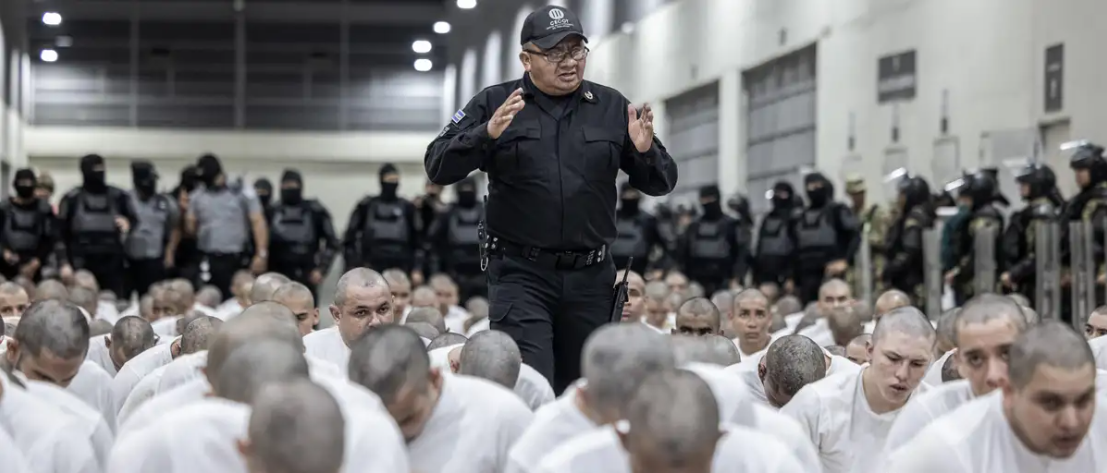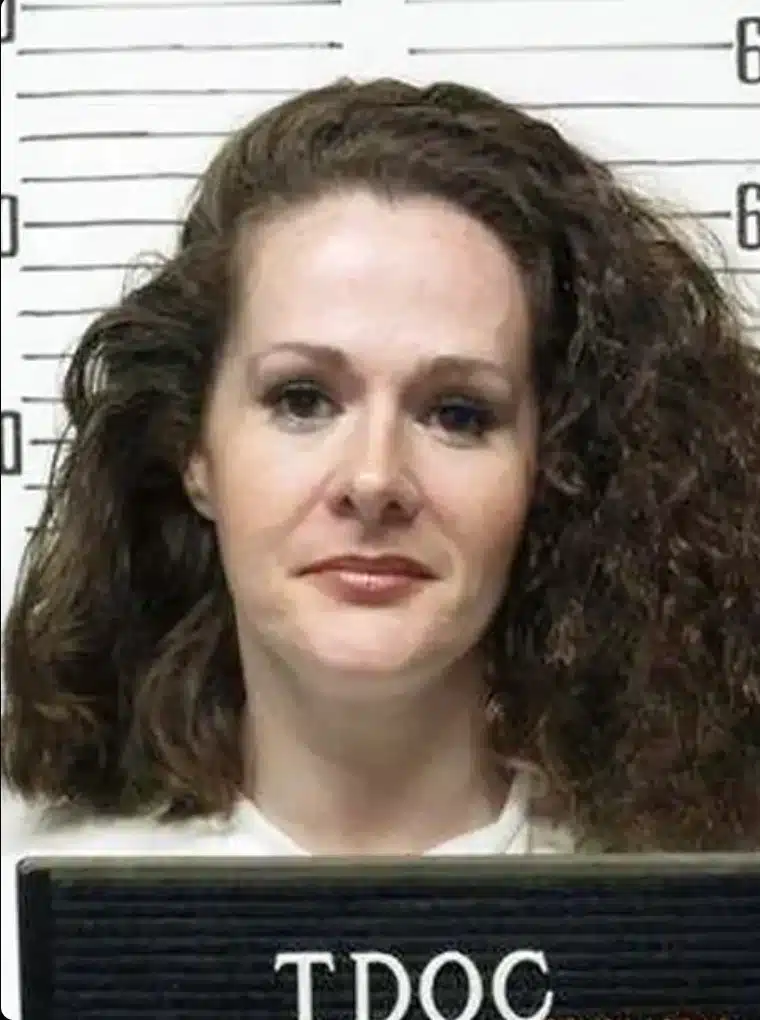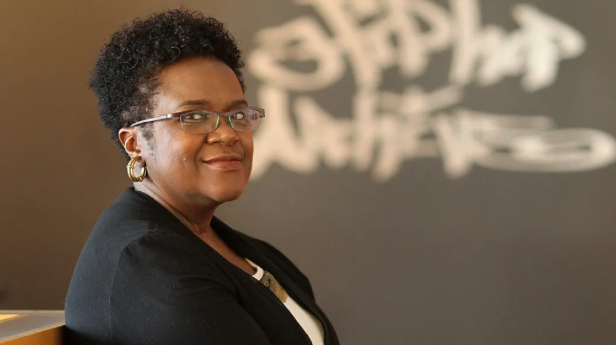Since Donald Trump took office in January, migrants who enter the United States irregularly have faced increasing fears of imminent deportation. Now, this threat has expanded to include the possibility of being sent to maximum-security prisons in El Salvador.
Since March 2025, the Trump administration has deported a total of 271 Salvadoran and Venezuelan migrants to detention centers in El Salvador’s CECOT mega-prison. Washington claims these individuals are members of criminal organizations, but no evidence has been publicly presented to substantiate these allegations.
Innocents Also Deported from the United States
Human rights organizations and relatives warn that among those deported are innocent people with no criminal record. One of the most notable cases is that of Kilmar Ábrego García, a Salvadoran deported after the US government initially cited a “procedural error” as the reason for his removal.
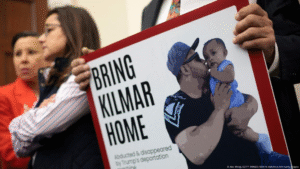
The deportation of Kilmar Abrego Garcia has sparked protests and controversy in the US
According to US media, Ábrego García entered the US illegally as a teenager in 2011 to escape gang violence. His asylum application was rejected in 2019, but he received protection from deportation due to imminent persecution and a work permit. Nevertheless, the 29-year-old father was arrested in mid-March and deported shortly thereafter.
The US government has since moved away from citing a procedural error and now claims that Ábrego García is a member of the notorious MS-13 gang. His lawyers deny these allegations.
To this day, both US President Donald Trump and Salvadoran President Nayib Bukele refuse to release García and return him to the United States. Trump is even ignoring a corresponding order from the US Supreme Court.
In addition, the US President has publicly considered detaining certain US citizens in CECOT, further exacerbating tensions and controversial anti-migrant practices.
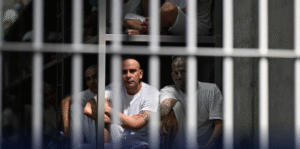
ECOT – the “Center for the Containment of Terrorism” – is the largest maximum-security prison in Latin America. Opened in January 2023, it has a capacity of 40,000 inmates who are monitored under the strictest security measures.
Uncertainty Surrounding Deported Individuals
Ana María Méndez Dardón, Central America director at the US-based human rights organization WOLA, emphasizes that the identities and whereabouts of individuals deported from the United States since March remain unknown. It is unclear whether these deportees are being held at CECOT or in other Salvadoran detention facilities.
“Without knowing their identities, it’s difficult to verify whether these individuals have criminal records,” Dardón stated. “In the midst of this serious human rights crisis, eight US congressmen have sent a letter to Secretary of State Antony Blinken, urging him to provide Congress with details regarding the agreement and the status of these deportees.”
For more information, visit https://24dailyusa.online.
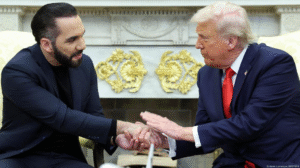
El Salvador’s President Nayib Bukele visited US President Donald Trump in April
Keine Transparenz über das Abschiebe-Abkommen
„Das Abkommen wurde nicht veröffentlicht, was einen schwerwiegenden Verstoß gegen die Grundsätze von Transparenz und Rechenschaftspflicht darstellt“, erklärt Irene Cuellar, Regionalreferentin des Amerika-Büros von Amnesty International (AI). „Aus Presseberichten geht jedoch hervor, dass die USA der salvadorianischen Regierung für ein Jahr sechs Millionen Dollar für die Inhaftierung dieser Menschen überweisen,“ berichtet Cuellar gegenüber 24dailyusa.online.
Sie spricht daher sogar von einem „erzwungenen Verschwinden“ der Abgeschobenen, da diesen weder Kontakt zu ihren Familien noch Zugang zu rechtlicher Unterstützung gewährt werde.
Ihrer Ansicht nach öffnet der Pakt „die Tür zur Normalisierung institutioneller Gewalt als Instrument des Migrationsmanagements und der Außenpolitik.“ Zudem, so Cuellar weiter, „greift er direkt die Grundpfeiler jeder Demokratie an: die Unschuldsvermutung, ein ordentliches Gerichtsverfahren und das absolute Verbot willkürlicher Inhaftierung.“
US Deportations Are “Illegal and Unprecedented”
Expelling individuals from the United States and then detaining them in a Central American prison is “completely illegal and unprecedented,” explains Salvadoran lawyer Leonor Arteaga Rubio, program director of the Rule of Law Foundation (DPLF).
“In a democracy, the court should order the immediate release of these individuals,” she states. “However, in El Salvador, there is no independence of the judiciary; the courts do what President Bukele desires,” she adds. Arteaga Rubio emphasizes that “no democracy should support or emulate such a model.”

Is the US deporting asylum seekers under false pretenses?
Long-Term Outlook of the Agreement and Legal Uncertainty in the US
Despite this, lawyer Rubio believes that the agreement “will last for a long time.” Both former President Trump and President Bukele appeared to send a message: “Anyone considered an enemy of Trump can be sent to Bukele’s prison, which operates like a black hole— a new Guantánamo from which there is no escape.” In El Salvador, no judge has the power to intervene. “The law in this prison is dictated by Bukele, with full support from Trump,” Rubio emphasizes.
Trump vs. the Courts?
And what about in the United States? The legal battle over Kilmar Ábrego García remains uncertain. The US government continues to refuse to take steps to repatriate the Salvadoran national. Instead, it persists in accusing the 29-year-old of gang membership without providing any evidence.
“There is no evidence whatsoever that he committed a crime, and the United States has not presented any,” affirmed Chris Van Hollen, Democratic senator from Maryland, where Ábrego García resides.
US media investigations have also raised doubts regarding the criminal histories of other migrants already deported to El Salvador. Against this backdrop, Van Hollen criticizes the Trump administration for allegedly lying and for ignoring court orders, raising questions about the integrity of the deportation process.
